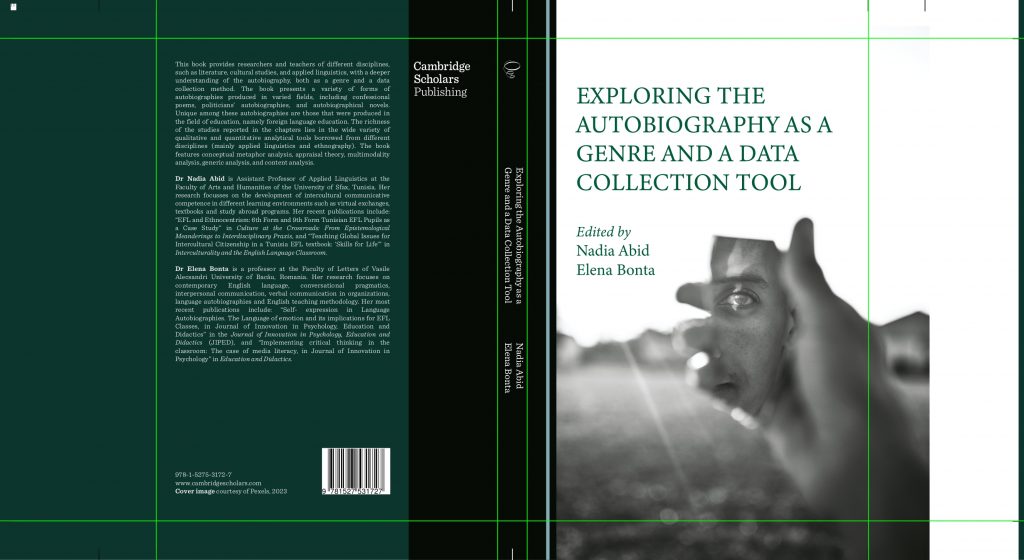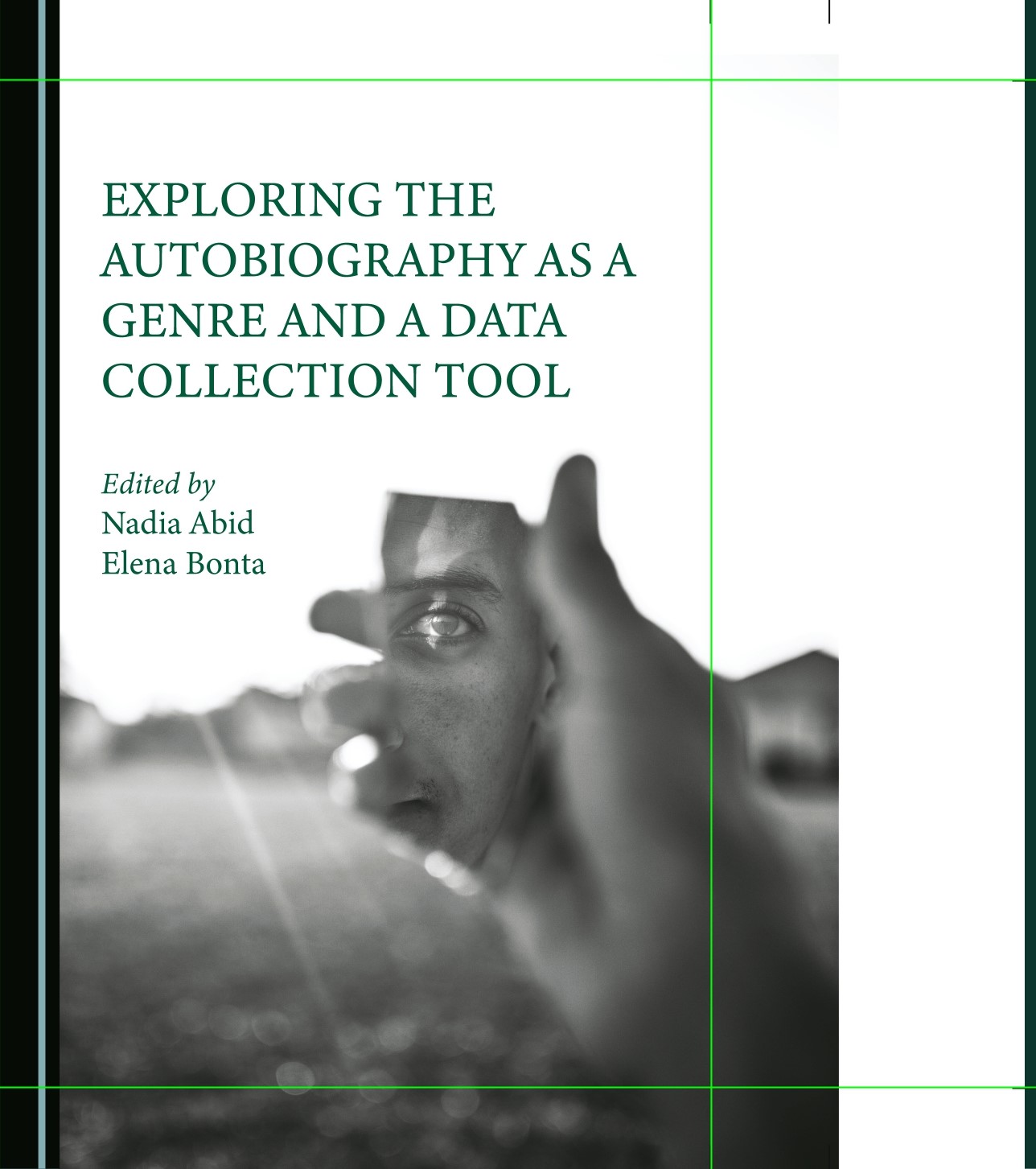- Titre de l’ouvrage: Exploring the Autobiography as a Genre and a Data Collection Tool.
- Edité par : Dr Nadia Abid Assistant Professor of Applied Linguistics at the Faculty of Art and Humanities of the University of Sfax, Tunisia. Her research focusses on the development of intercultural communicative competence in different learning environments such as virtual exchanges, textbooks and study abroad programs. Her recent publications include: « EFL and Ethnocentrism: 6th Form and 9th Form Tunisian EFL Pupils as a Case Study » in culture at the Crossroads: From Epistemological Meanderings to Interdisciplinary Praxis, and « Teaching Global Issues for Intercultural Citizenship in a Tunisia EFL textbook: « Skills for Life » in Interculturality and the English Language Classroom. Dr Elena Bonta Professor at the Faculty of Letters of Vasile Alecsandri University of Bacău, Romania. Her research focuses on contemporary English language, conversational pragmatics, interpersonal communication, verbal communication in organizations, language autobiographies and English teaching methodology. Her most recent publications include: Self-expression in Language Autobiographies. The Language of emotion and its implications for EFL Classes in Journal of Innovation in Psychology, Education and Didactics (JIPED), and « Implementing critical thinking in the classroom: The case of media literacy, in Journal of Innovation in Psychology » in Education and Didactics.
- ISBN: 9781527531727
- Edition: Cambridge Scholars Publishing
- Langue: anglais
Résumé
The book aims at providing researchers and teachers in different disciplines, such as literature, culture studies, and applied linguistics, a deeper understanding of autobiographies both as a genre and a data collection method. The book presents a variety of forms of autobiographies produced in varied fields including confessional poems, politicians’ autobiographies, and autobiographical novels. Unique among those autobiographies are those that are produced in the field of education, namely foreign language education. The richness of the studies reported in the chapters lies in the wide variety of the qualitative and quantitative analytical tools borrowed from different disciplines, mainly from Applied Linguistics and Ethnography. Authors deployed Conceptual Metaphor Analysis, Appraisal Theory, Multimodality Analysis, Generic analysis, and Content Analysis.


